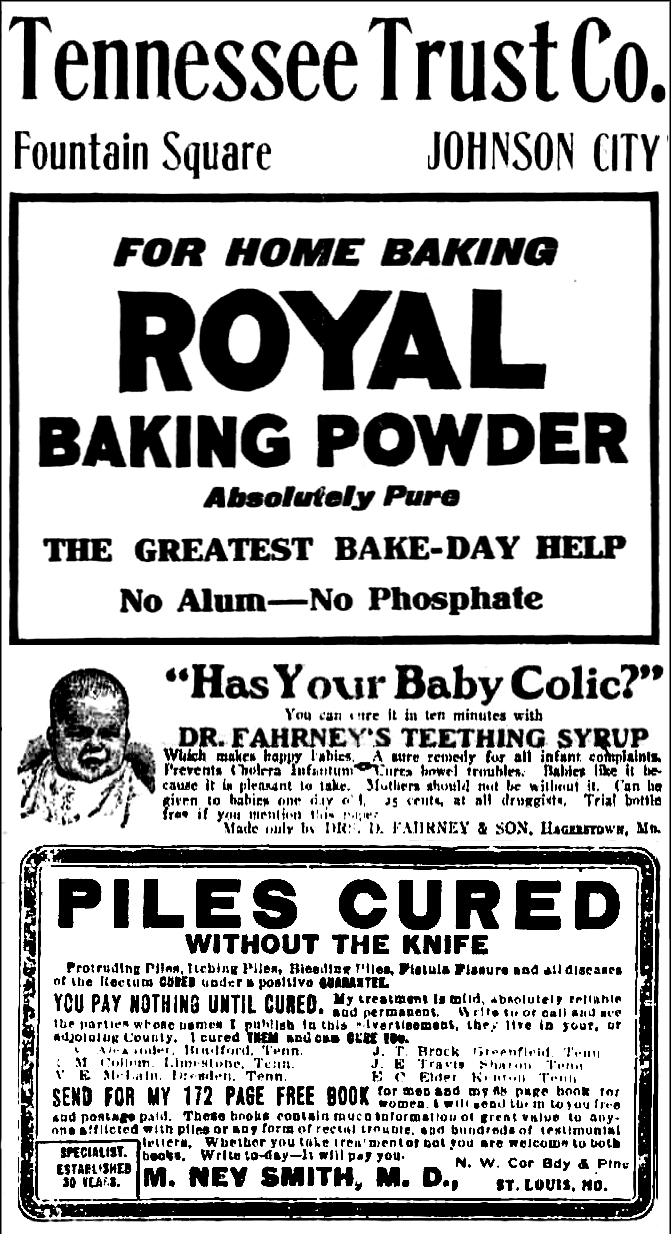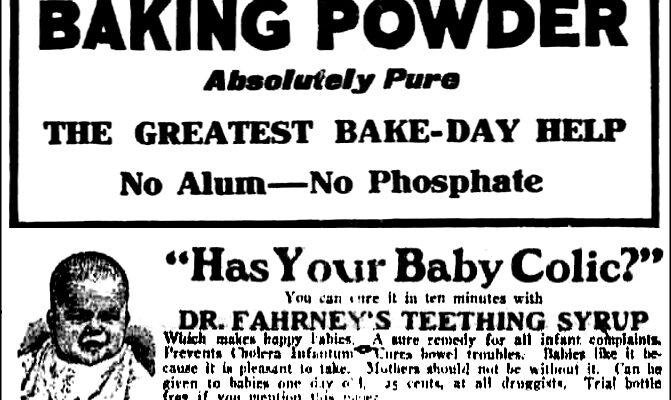In March 1917, Ms. Geneva Conway, Specialist in Home Economics at the University of Tennessee, penned an article for a Johnson City newspaper titled, “Mrs. Housewife, Have You Tried These?”
“Discarded Safety Razor Blades: They are good for cutting threads when quilting, as they are light, sharp and most people have them.
“A Good Duster: Take equal parts of coal oil and water. Wet and wring out the cloth and hang it up until nearly dry, and use as a dust cloth.
“When Making Fires: Place several corn cobs in a tomato can which contains coal oil and let it bake overnight. The corn cobs added to the wood and paper will insure a quick fire.
“When Washing Flannels: Do not let them lie very long in water and do not rub soap on them. Make suds in the water, wash quickly, press gently, but do not wring out. Shake and place them where they will not stretch and will dry quickly.
“Saving Time on Seams: In making garments, if the raw seam is unsightly, try sewing it up in the smallest hemmer. This makes a very neat finish and is much more quickly done than French felling and saves time in stitching.
“When Laying a Rag Carpet: Tack one edge down to the floor. Get a narrow piece of plank three or four inches wide and seven or eight feet long; drive three or four nails through one end. Catch the nail points near the edge of the carpet and push it to the right place, and tack. This will help in stretching.
“When Laying a Carpet: Use thick layers of newspaper under the carpet for a padding. Papers make a smooth, even surface and will not hurt the carpet as does the rough floor. Also, dust catches on top of them. When the carpet is taken up, if you carry out the papers carefully little, if any dust will remain on the floor. Moths will not cut carpets over newspapers, because they dislike printers' ink.”
In addition to the remarks from Ms. Conway to the ladies came these comments in the same publication directed to farmers:
“Advise for Feeding Livestock: No matter how well-bred an animal is, he will never make a high-class critter unless he is well-fed from the beginning. A plain-bred animal well nourished, oftentimes develops into something good.

Four Advertisements from March 1917, Same Timeframe as the Article
“However, many young animals are ruined because their owners are more interested in saving feed than developing them.
“All of our lands need manure, more or less, and no farmer can obtain more manure than' he can use.
“Livestock pays dividends. This can be seen on the farms of a nearby state by the following figures secured from 81 farms in one community. They were not selected farms, but instead taken as they lay along the road.
“These farms were divided into three groups according to the number of livestock grazing on it: 1. One-third of the farms were found to have over 20 head of cattle, 2. One-third had between 12 and 20 head each; and 3. One-third had less than 12 head.
“The heavier stocked farms returned a profit for the year of $774 more than those with the small amount of livestock.
“Another community selected at random showed nearly the same proportion. Live stock furnishes a way to increase the volume of farm business without increasing the farm area. Through livestock, much of the poorer grades of feed may be utilized to better advantage than by selling it.
In fact, much roughage that is ordinarily wasted can be made to give good returns. The manure obtained is essential in maintaining soil fertility.”
The newspaper's parting words were, “The above figures offer farmers some food for thought. If you are thinking of purchasing additional land, consider putting your money into more live stock for the land you already own.”

Comments are closed.